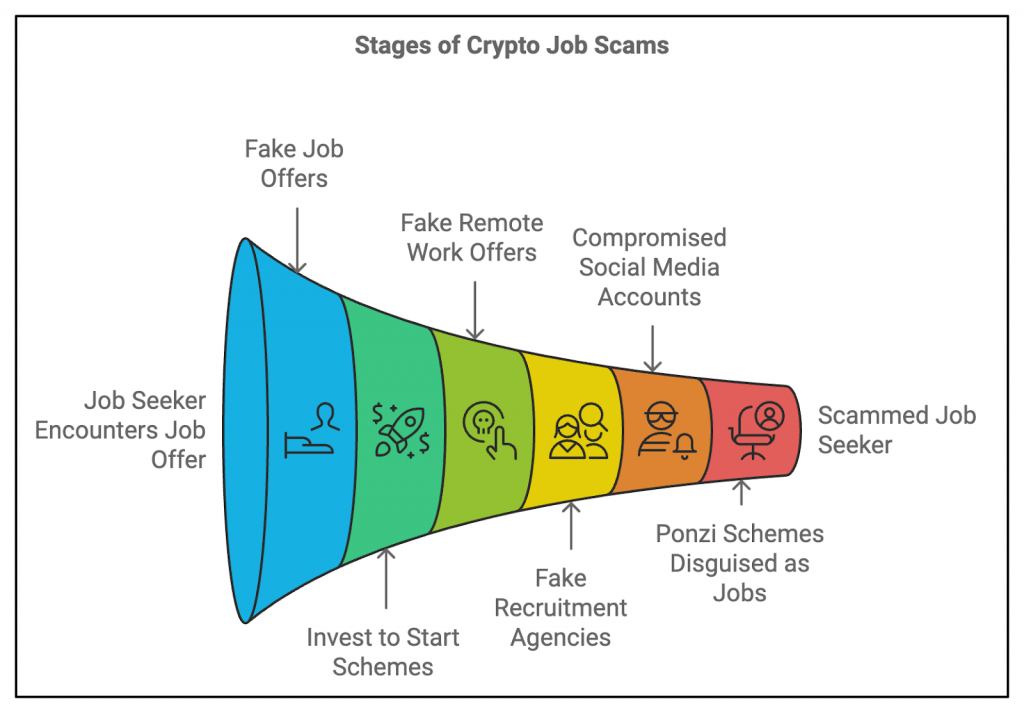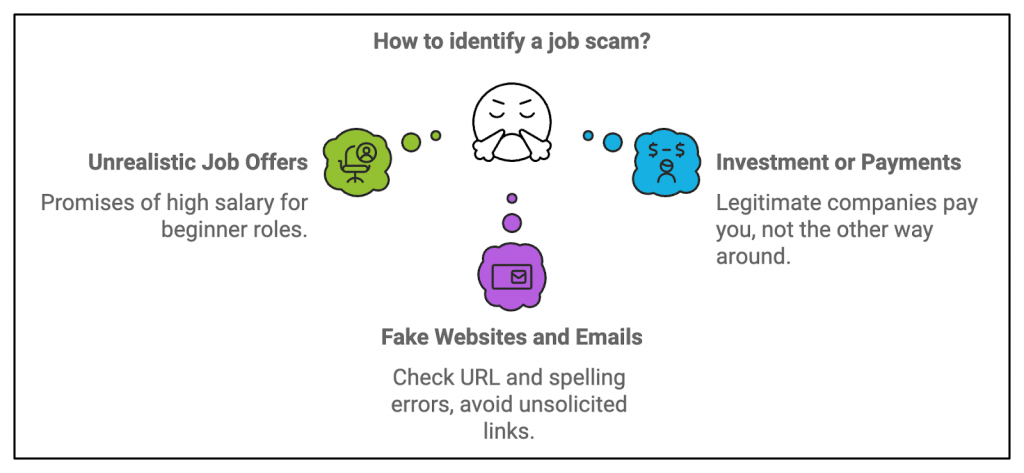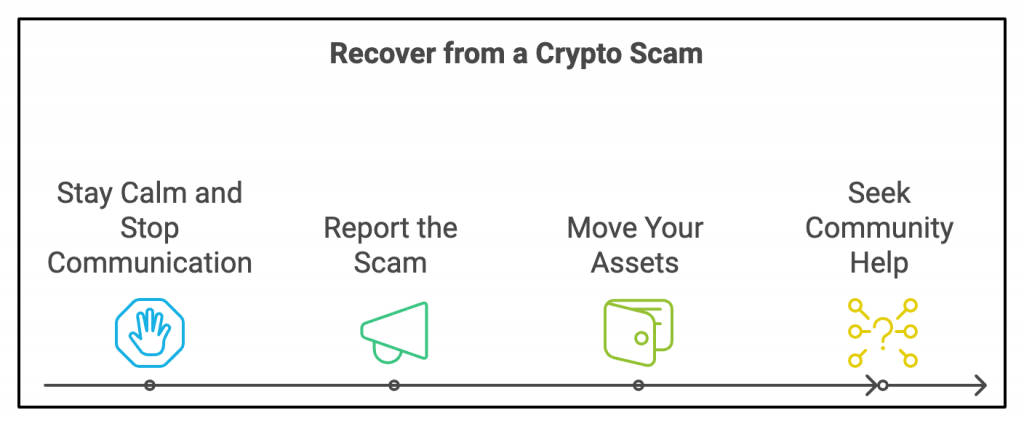Crypto Jobs Scams 101
The crypto world is exciting, fast-paced, and filled with opportunities. But while plenty of people are hunting for their dream jobs in this new industry, scammers are busy trying to trick you into fake crypto job offers. Let’s dive into how these scams work, the warning signs, and what you can do to stay safe.
Types of Crypto Job Scams You Need to Know
You must be aware of all crypto job scams to stay calm and avoid fake proposals. Here, we have described the most popular scammer options.
Fake Job Offers on Crypto Exchanges
Scammers often impersonate big names like Binance, Kraken, or Coinbase to lure unsuspecting jobseekers. They send official-looking job offers but require sensitive info or a “security deposit” to proceed. Rule #1: Real companies will never ask for your crypto or personal details, like private keys.
“Invest to Start” Schemes
If you invest first, this scam lures you in with an opportunity to “join early” on an exciting crypto startup. Once you send the money, the company disappears. Tip: No legit job makes you pay to start.
Fake Remote Work Offers
Imagine landing a remote crypto job, but you’re asked to download specific software to get started. Instead of a work tool, you install malware that steals your wallet credentials or spies on your transactions. Reminder: Be cautious about downloading anything, especially if it’s not a well-known app.

Fake Recruitment Agencies
Some scammers pose as recruitment agencies for giant crypto companies. They conduct interviews, ask for personal information, and even request payment for “job processing fees.” After taking your money, they vanish. Tip: Legit recruiters get paid by the company, not by you.
Compromised Social Media Accounts
Beware of job offers coming through hacked social media accounts. Scammers often take over accounts of real people on platforms like Twitter, LinkedIn, or Telegram to pitch fake crypto job opportunities. They then ask for crypto deposits to secure the job.
Ponzi Schemes Disguised as Jobs
You might find job ads where your “work” involves recruiting others to join the company. You get paid in crypto for each person you bring in, but no product or service exists. This is a classic Ponzi scheme, where earlier members get paid using the money from newer recruits.
Airdrop and Bounty Campaign Scams
Some job ads offer “easy crypto earnings” by participating in airdrops or bounty campaigns. These fake campaigns require you to promote a token or join Telegram groups. After you complete the tasks, they might ask you to deposit crypto to claim your rewards, which never come. Tip: Legit airdrops never ask for deposits.
Fake Blockchain Developer Jobs
This scam targets developers by offering positions at blockchain startups. Once hired, the scammer requests you to build parts of their platform, asking for code access to your GitHub or personal repositories. This can lead to data theft or malicious use of your credentials.

SIM-Swapping Jobs
Some scammers pretend to offer jobs in crypto-related customer support. Once you’re hired, they ask for personal details like phone numbers to “verify your identity.” With this info, they initiate a SIM-swap attack, gaining access to your two-factor authentication and draining your accounts.
Fake Mining Jobs
Scammers post job ads for “crypto mining operators” where they ask you to pay upfront for mining equipment or access to their mining pool. After the payment, the equipment never arrives, or the mining pool is fake.
Phishing Job Postings
In this scam, fake job ads direct you to websites that look like legitimate job boards or company sites. Once you apply, they ask you to sign in or provide personal details. These phishing websites steal your login credentials or wallet information.

How to Spot a Crypto Job Scam Like a Pro
Sure, we know solid methods that may help you to spot scammers in the job market. Let’s uncover them.

Common Crypto Job Scams and Real Examples
Let’s look at a few real-world cases:
What to Do if You’ve Been Scammed
Okay, so the worst-case scenario: you got scammed. Here’s what you need to do:
- Stay Calm and Stop Communication. Immediately cut off contact with the scammer. Engaging further might make things worse.
- Report the Scam. Report the scam to the Federal Trade Commission (FTC) or Internet Crime Complaint Center (IC3). You can also try contacting the platform where the scam occurred (e.g., LinkedIn, Telegram) to report the account.
- Move Your Assets. If you shared your crypto wallet info, move your funds to a new wallet ASAP.
- Seek Community Help. Reddit and Twitter are full of crypto enthusiasts who might be able to help you trace your funds or offer advice on recovery steps.

Tips to Avoid Crypto Job Scams
Let’s wrap it up with some simple, proven tips:
Final Thoughts
Crypto job scams are out there, but they don’t have to stop you from pursuing your career in the industry. Stay vigilant, use common sense, and remember that if something feels off, it probably is. Follow these tips, and you’ll be well on your way to securing a legit role in the crypto world.
Stay safe, and happy job hunting!



